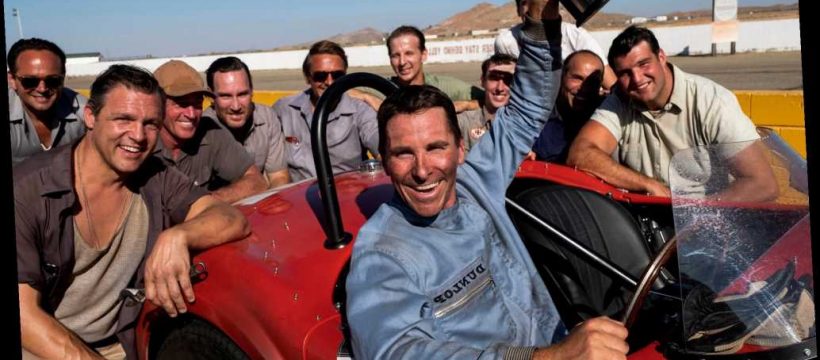The new film “Ford v Ferrari” is a celebration of three of the most important energy sources in the world: capitalism, gasoline and testosterone.
The race-car drama flattened the latest tired, feminist iteration of “Charlie’s Angels” last weekend at the box office, proving that there’s an appetite for stories that haven’t been told a thousand times before and also for good old star luster, embodied by Christian Bale as British racer Ken Miles and Matt Damon as the Texas racer turned car designer Carroll Shelby. Yet “Ford v Ferrari” isn’t just a fun movie about pressing the pedal to the medal, it’s also an unapologetic salute to all the stuff we’ve forgotten is awesome: America, capitalism, corporations, competition, cars and especially hard-charging, fist-pumping, danger-scorning masculinity.
Set in the 1960s, an age of Salisbury steak and “Gunsmoke,” America, as symbolized by the Ford Motor Co., has become complacent and defensive, designing its products for mass appeal instead of quality or style. Henry Ford’s grandson Henry Ford II (Tracy Letts) craves what Enzo Ferrari has, which is a reputation for making the fastest, coolest race cars on the planet. When Ford tries to buy Ferrari’s company outright, though, he gets tricked: Ferrari despises lumbering American ways and sells his outfit to his countrymen at Fiat instead. The CEO decides he must beat Ferrari at his own game, by producing a car that can win the grueling 24-hour race known as Le Mans. But his company is an elephant. Can he teach it to move like a tiger? As he pushes the company forward, the movie celebrates capitalist ingenuity and innovation — the breakthroughs in creativity that are made possible by the ruthless Darwinism of the marketplace, even when your company is already a symbol of corporate might.
“Ford v Ferrari” is an unusual movie about business because its product is one that people can and do get killed using; there is a black cloud of danger hanging over everything Miles and Shelby do, like “The Right Stuff” at ground level. As with previous frontiers, such as the West and space, conquering a new level of racing excellence will require a breathtaking amount of testosterone-driven courage. Moreover, in an age when cars are demonized and we’re told that virtue lies with a Citi Bike, “Ford v Ferrari” is an exhilarating ode to the all-American joys of car culture — driving as liberation, as swashbuckling adventure, as individualism translated into machinery. No, cars aren’t just a method for getting from point A to point B. They’re imbued with all sorts of meaning, which is why we love them. Quick: What brand of refrigerator do you own?
Reversing the usual (and clichéd) David-and-Goliath movie formula, “Ford v Ferrari” gets us to root for the big guy — in fact, the biggest guy, the United States. Maybe you have to go overseas to find intellectuals who actually think well of America, but the British screenwriters, the brothers Jez and John-Henry Butterworth, who wrote the movie with the American Jason Keller, clearly admire American ingenuity, which is closely tied in to a masculine drive to be the biggest dog in the yard. Britain used to be that way too, up until 1945, when its crushed spirit manifested in an election sweep for the socialist Labour party. The movie’s script is aware that something important is lost when a country no longer assumes that it should rule the world in absolutely every category, even a seemingly trivial one such as an automobile race. Miles, the Bale character, is a Brit, too, but he lives in California, in self-imposed exile from the sclerotic, hangdog UK.
Audiences are thrilling to “Ford v Ferrari” because in an age when every corner of the culture is shrieking “toxic masculinity,” the movie is a true account of how masculinity can make the world a better place. That obsessive need to compete pushes man to higher and higher levels. Sometimes that instinct to fight over everything — “to find quarrel in a straw,” in Hamlet’s words — manifests itself in strange ways, as when the two principals beat each other up with the contents of a sack of groceries. The New Yorker dubbed this scene “an erotic tangle,” but the spirit of it is Mars, not Eros. The two men are essentially brothers, and sometimes brothers communicate with their fists. Bravo to a movie that resists the mass psychosis telling us that there is something inherently wrong with acting like a man.
Kyle Smith is critic-at-large at National Review
Source: Read Full Article

